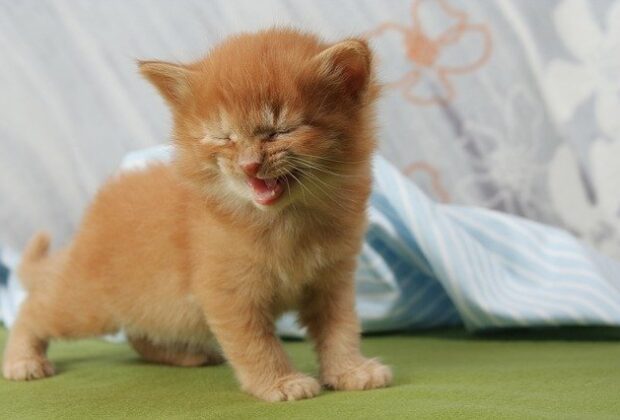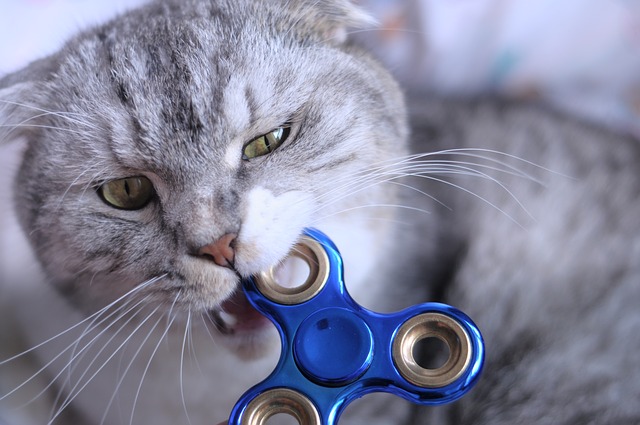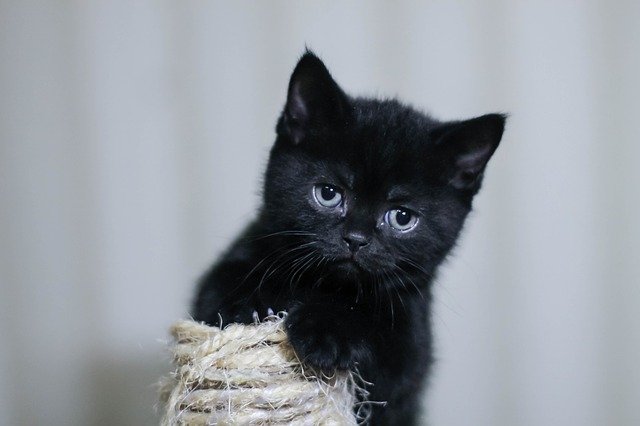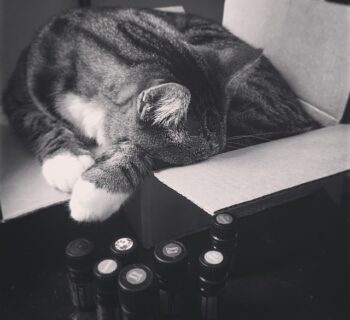First, meowing is entirely natural, and your cat may meow for several reasons. Unless it becomes excessive or you suspect that an underlying condition is causing your feline’s meowing, you shouldn’t try to stop a cat from doing this. That being said, in this article, we will discuss some of the ways to control your kitten from meowing excessively, why a cat may meow in the first place, things you can do when dealing with a cat that meows and other details you will find helpful.
Table of Contents
Why Cats Meow/What Cat Meows Mean
A cat’s way of saying hello
Cats cannot verbalize their thoughts as humans can. So, if your cat meows whenever it sees you after being away for a while, it can be its way of saying hello/welcome. Cats also may meow as a greeting to unfamiliar people and other pets.
In need of attention
Cats can sometimes meow to get attention from their humans. This is usually accompanied by gentle rubs against your leg and purring. While they enjoy their time alone, they also crave attention from their human family, and they meow to let you know.
It might be breeding time
Unspayed/unneutered cats may display certain behaviors during breeding time and around the period they transition from kitten to cat. Meowing is one of them. In unspayed cats, the behavior is not uncommon. The behavior significantly reduces when they are spayed.
Boredom/loneliness
Like their humans and other animals, felines can grow bored. While they enjoy being alone and independent, they also need some level of mental and physical stimulation in their environment to prevent boredom and obesity.
Underlying health condition
Cats may meow because of an underlying health condition that you may be yet to discover. If you cannot tell why your cat is meowing after a simple physical examination, have a vet or pet expert examine the cat for proper diagnosis and treatment.
What You Can Do When Your Kitten Meows Excessively
Thankfully, there are several ways feline human parents can stop the excessive meowing by their kittens. We’ll discuss some of the most effective methods below.
Train the cat to sit
We can easily teach cats to sit using an incentive such as canned food, treats, and toys. Your cats will follow you when you have any of these things and when they do, wait until they sit, then offer some of the treats.
To reinforce this behavior when the cats finally sit and help ensure that they stay seated for as long as possible, give them additional goodies for the training duration. Unlike dogs that only sit for short periods, cats love sitting and will remain seated if there is an incentive.
Teach the cat to be quiet
After the cat has learned to sit, you can start teaching quietness by rewarding the behavior. As you did with the sit training, train the cat to remain quiet and then cite the behavior each time it obeys with treats. Your feline will understand that staying silent instead of meowing or shouting fetches treats and other rewards when you are consistent.
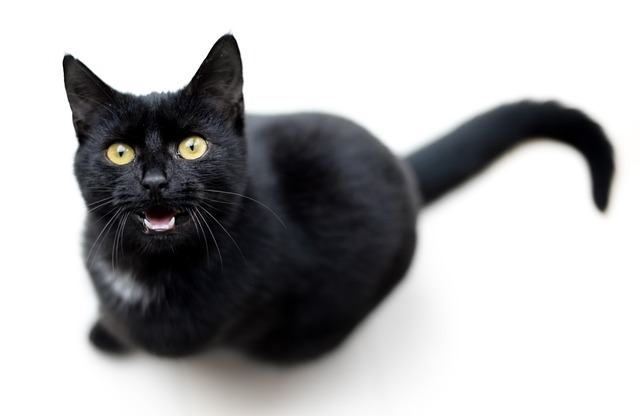
Feed the cat late
Most cats have feeding schedules, and while that is okay and even recommended, with excessively meowing cats, you should consider moving your cat’s evening/last meal of the day to later in the evening. This way, the cat is less likely to feel hungry and meow for food throughout the night. You can also split the last meal of the day into two servings and serve one earlier and the final portion later/before going to bed.
Learn to ignore the behavior
Yes, you can reduce your cat’s meowing by ignoring the behavior. However, once the kitten starts to meow, try not to reinforce the behavior by giving it any attention or showing any concern, especially when it does so for even the most minor reasons.
By giving it attention with every meow, you reinforce the behavior, and the cat learns to do it excessively, creating more problems for you and others in the home. While this may take some time for your cat to learn, the behavior eventually gets better as your cat gets to understand that it does not have to meow/yell to get your attention.
Keep the cat awake as much as possible during the day
Many cat owners have been able to stop excessive meowing using a timed feeder for their cats. With these devices, you can easily space out meals a few hours apart to keep the cat awake and active during the day.
These timed feeders are designed to feed both canned and dry food, and with these in place, the cat is kept awake and busy, so there is little time for meowing and more sleep at night for everyone.
Other Tips For Dealing With An Excessively-Meowing Cat
Below are some tips for dealing with a kitten that meows excessively;
Understand the reason for the meowing
Usually, when kittens meow, there is an underlying cause. While they do not need to be given attention every time they do so, you first have to establish the cause of the meowing. If you suspect that the behavior might be due to boredom, be confident that it really is because of it, not a different and/or possibly severe reason.
Keep your kitten amused with some form of entertainment
You will not always have time to keep your cat company, but what you can easily do is provide it some form of entertainment to keep it busy and keep boredom away. While some cat owners may get another cat for companionship, remember that animals are enormous commitments. So unless you are capable of providing the essentials for the new cat, you should look into other less demanding and less-expensive options such as kitten toys and products. These are effective for keeping your feline occupied for hours, and some even provide the mental and physical stimulation needed by your cat to stay alert and healthy.
Talk to a vet
Sometimes, despite our best efforts, we may not know the reason for excessive meowing to us without a vet’s check. Book an appointment with your vet as soon as possible, as excessive meowing can sometimes result from a severe health condition that could worsen if ignored. Remember, cats are shy animals and can hide ailments easily.
Avoid punishing the feline for meowing
It’s easy to lose it when cats meow excessively, but vets and cat experts advise against it. Punishing felines for meowing is not effective and will only make your cat more scared and meow more. Instead, try all you can to find the underlying cause of the problem and treat it accordingly.
Do not reward bad behavior
Sometimes, our felines’ excessive meowing is one way they get our attention over non-serious issues. And, giving it that attention at that time will only help reinforce the behavior. Once you confirm that your cat is well and its immediate needs are met, do not give in to the meowing. Don’t try to stop the behavior by excessively feeding the cat treats, as not only does it become an endless cycle, it is one of the common causes of feline obesity, and you do not want that. Only respond to the cat or reward it with treats when it finally gets quiet.
Provide your cat with water regularly
Like any other pet in the home, Felines need a regular and clean water supply. Dehydration can cause several health problems in kittens, resulting in meowing. Cats being fed dry food in particular need all of the hydration they can get. Provide the cat with clean water regularly using the water bowl or a good quality water fountain.
How To Get a Kitten To Stop Meowing: Conclusion
All kittens meow, even though some do so more than others. There are several reasons our felines will meow excessively, and we discussed some of these reasons and some of the things you can do to manage the behavior. We also shared a number of helpful tips for dealing with an excessively meowing kitten. When implemented, cat owners should notice significant changes in their pets. However, as with every aspect of dealing with kittens, patience and consistency are essential. Be gentle but firm, and soon, your cat will learn to reduce/stop the behavior and act better.
About the Author
Kirsten Heggarty
Kirsten created The Pet Handbook with the aim of sharing her knowledge about pets, pet food, healthy habits, and more. All of her advice is based on years of her own experience with her pets, and feedback that she has received from grateful readers about her tips. If you want to know more please read the About Me page.

